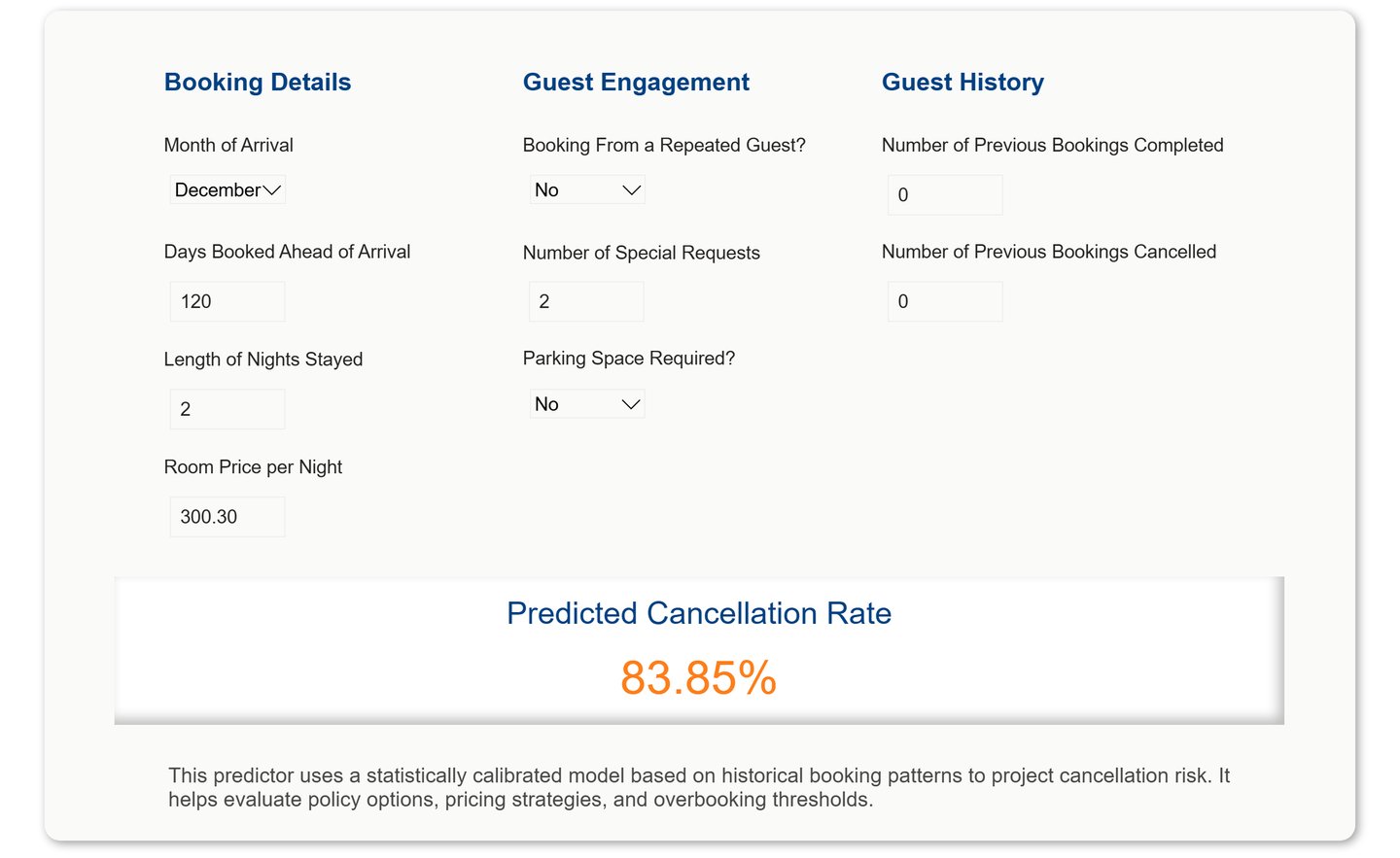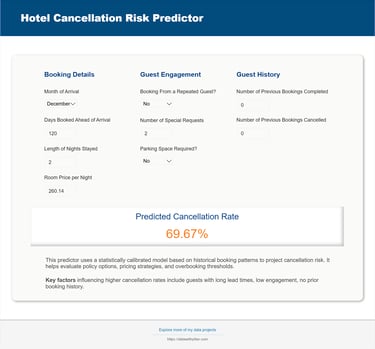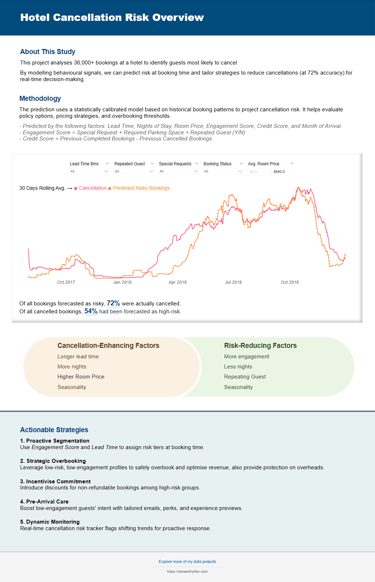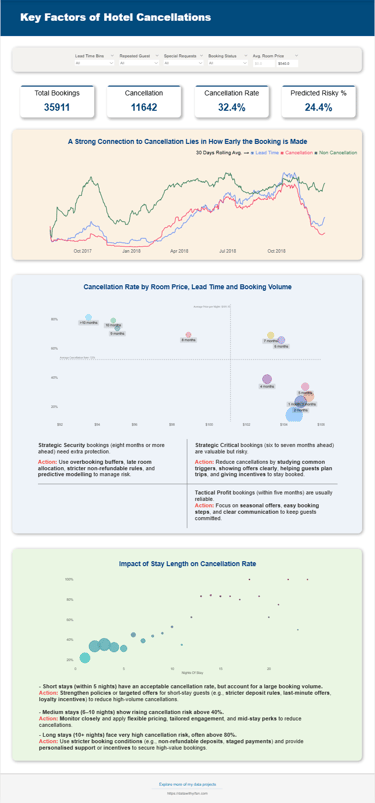Hotel Cancellation Risk Overview
Methodology
The prediction uses a statistically calibrated model based on historical booking patterns to project cancellation risk. It helps evaluate policy options, pricing strategies, and overbooking thresholds.
- Predicted by the following factors: Lead Time, Nights of Stay, Room Price, Engagement Score, Credit Score, and Month of Arrival.
- Engagement Score = Special Request + Required Parking Space + Repeated Guest (Y/N)
- Credit Score = Previous Completed Bookings - Previous Cancelled Bookings
About the Study
This project analyses 36,000+ bookings at a hotel to identify guests most likely to cancel.
By modelling behavioural signals, we can predict risk at booking time and tailor strategies to reduce cancellations (at 72% accuracy) for real-time decision-making.
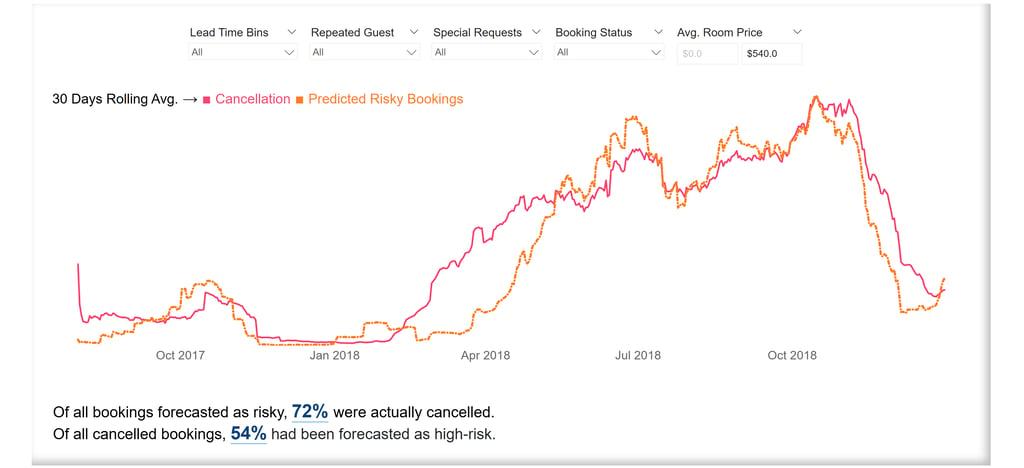



Actionable Strategies
1. Proactive Segmentation
Use Engagement Score and Lead Time to assign risk tiers at booking time.
2. Strategic Overbooking
Leverage low-risk, low-engagement profiles to safely overbook and optimise revenue, also provide protection on overheads.
3. Incentivise Commitment
Introduce discounts for non-refundable bookings among high-risk groups.
4. Pre-Arrival Care
Boost low-engagement guests' intent with tailored emails, perks, and experience previews.
5. Dynamic Monitoring
Real-time cancellation risk tracker flags shifting trends for proactive response.
Key Factors of Hotel Cancellations

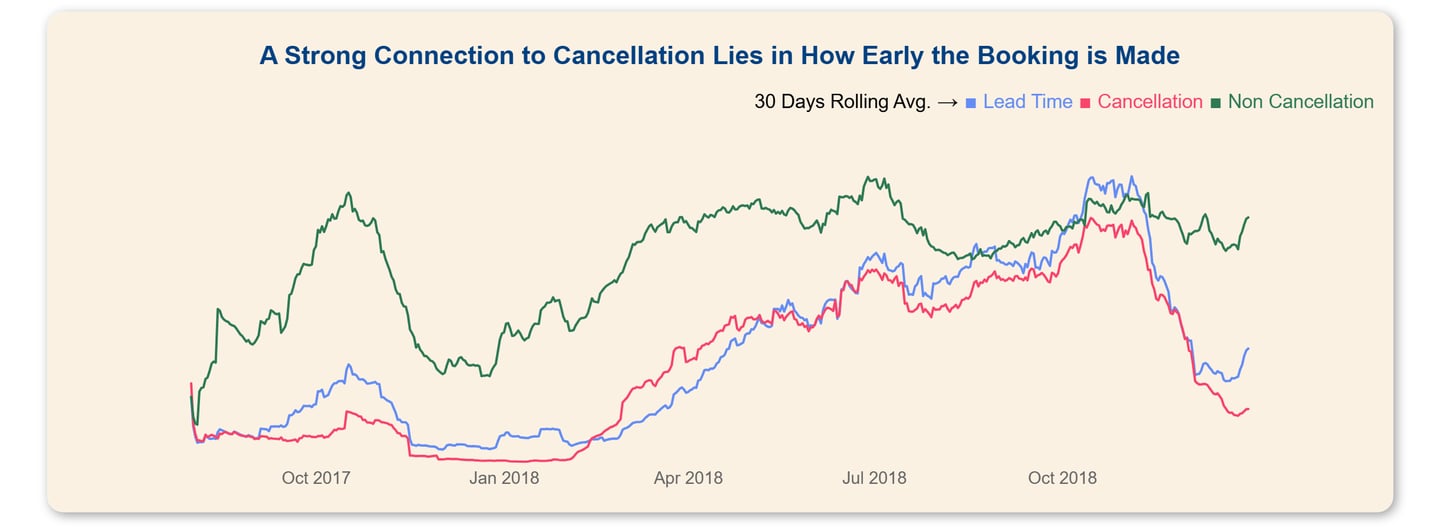

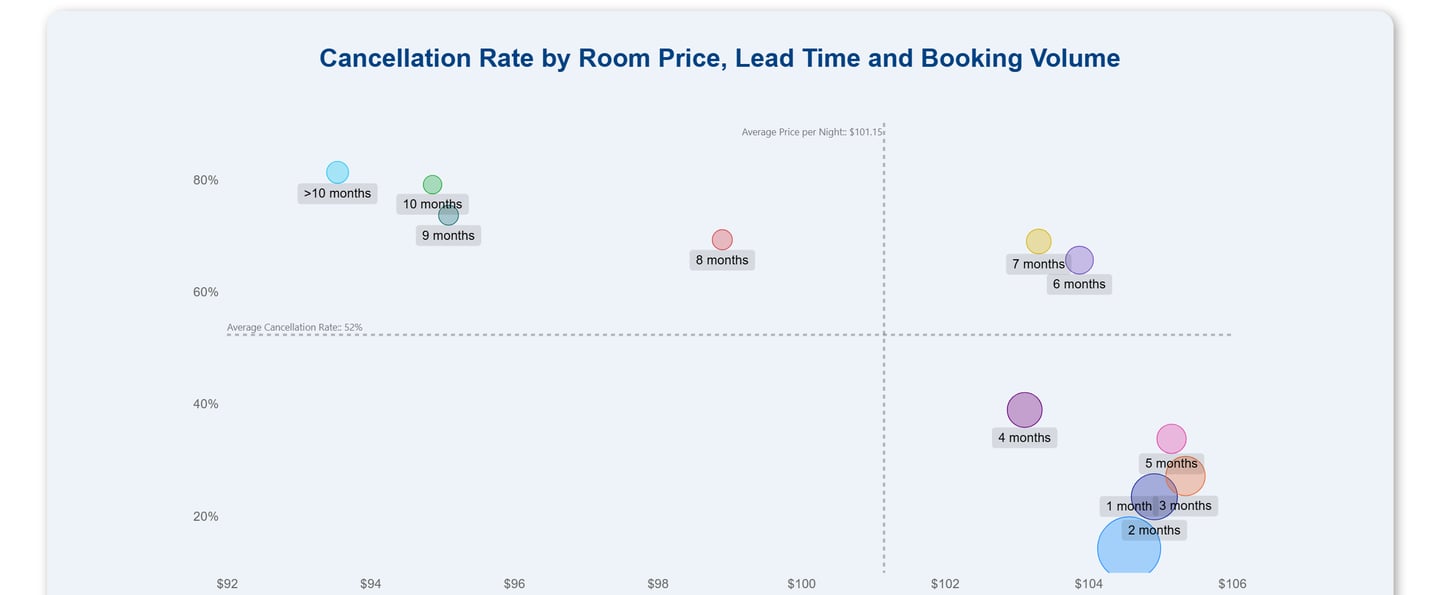



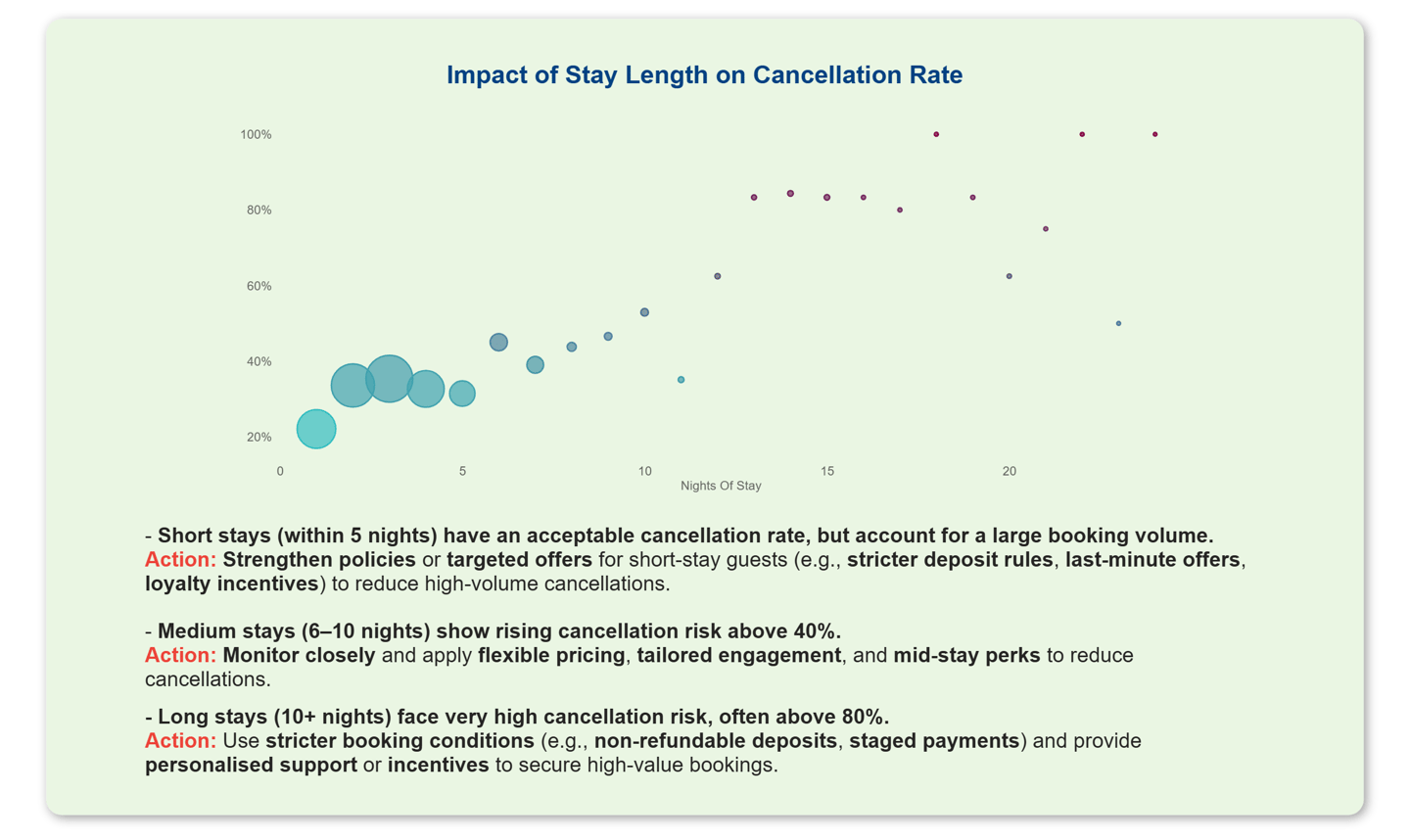

Hotel Cancellation Risk Predictor
